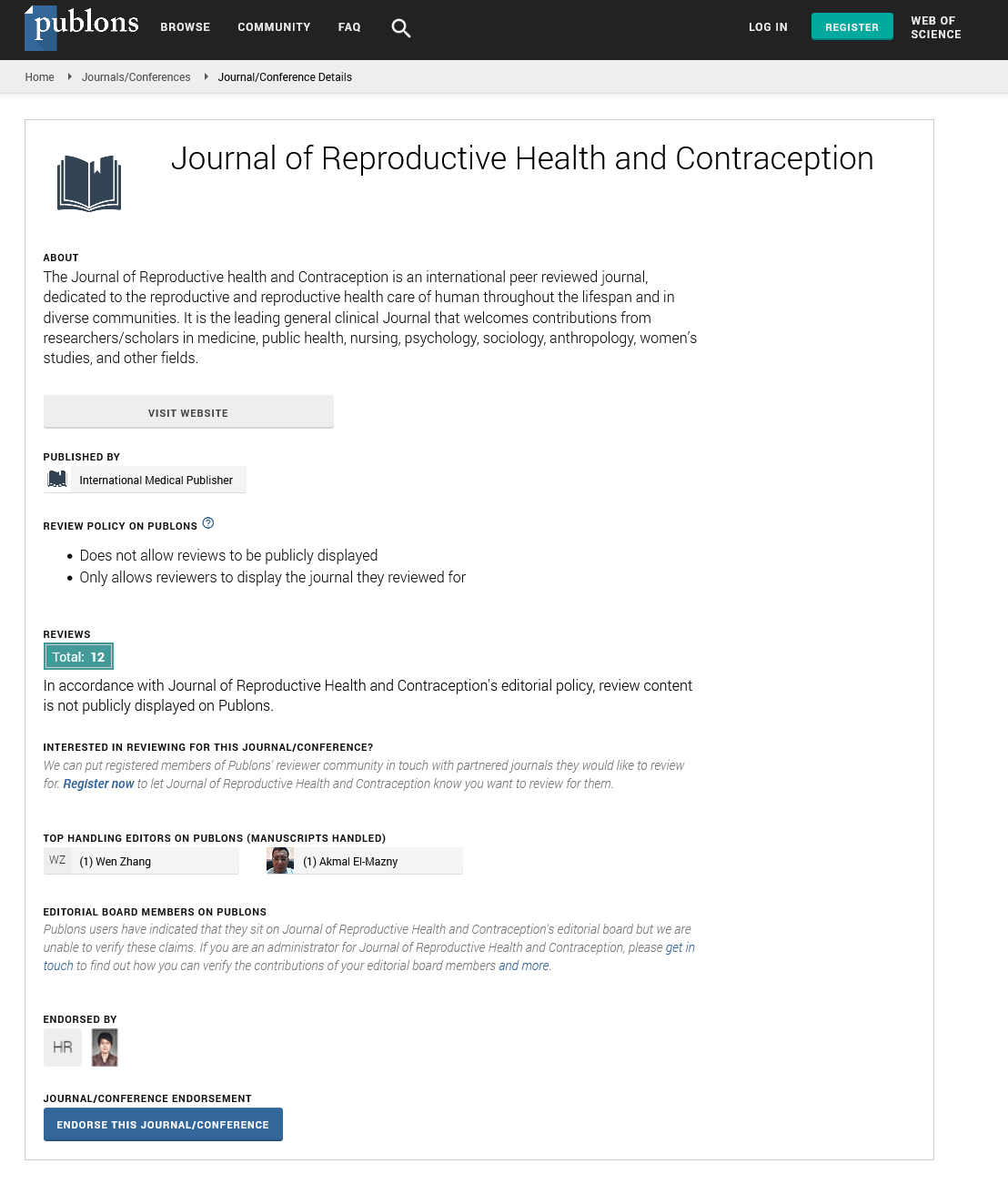ISSN : 2471-9749
Journal of Reproductive Health and Contraception
Anxiety and Depression levels in post-partum women before and during the COVID-19 pandemic in Italy
International Congress on Midwifery and Maternal Health
October 13, 2022 | Webinar
Elsa Vitale
Local Health Authority Bari, Italy
ScientificTracks Abstracts: J Contracept Stud
Abstract
Background and Aim: Women tend to report greater symptoms of anxiety and depression during outbreaks than men, especially in the pregnancy condition. The present study aims to compare the level of anxiety and depression in postpartum women who gave birth before and during the period of the COVID-19 pandemic. Methods: Women were divided into two groups: the case group, which included Italian women who delivered during the pandemic period (from December 2019) and the control group, which included Italian women who delivered before the pandemic period (until November 2019). An ad-hoc questionnaire was created and administered online. Depressive disorder was evaluated with the Edinburgh Postnatal Depression Scale and anxiety disorders were assessed with the Generalized Anxiety Disorder, version 7. The values obtained were then differentiated on the basis of socio-demographic variables and the characteristics of childbirth and breastfeeding between the two groups and univariate regression analysis were performed to assess which factors influenced anxiety and depression disorders among the two groups considered. Results: A total of 266 women participated in the study. Of these, 110 belonged to the control group and 156 women belonged to the case group. No statistically significant differences were recorded between the two groups as considering socio-demographic characteristics and characteristics of delivery. GAD values statistically differed considering the age groups (p<.001), the level of education (p=.024), the type of birth (p=.021). All factors related to the EPDT scores were not significantly influencing both in the case group and in the control group, except in the control group as the type of breastfeeding (p=.037). Significantly influencing factors in the evaluation of generalized anxiety disorder were age in the control group (p=.045) and the number of weeks of gestation in the control group (p=.021).} Conclusions: Further investigations are desirable to understand which factors most influence the depressive and anxious state of women in order to better address all the numerous psychological support initiatives that may be the most appropriate, timely and effective, even in emergency situations.
Biography
Elsa Vitale has her expertise in evaluation and passion in improving the health, nursing and wellbeing. Her open and contextual evaluation model based on responsive constructivists creates new pathways for improving healthcare.
Google Scholar citation report
Citations : 201
Journal of Reproductive Health and Contraception received 201 citations as per Google Scholar report
Journal of Reproductive Health and Contraception peer review process verified at publons
Abstracted/Indexed in
- Google Scholar
- China National Knowledge Infrastructure (CNKI)
- WorldCat
- Publons
Open Access Journals
- Aquaculture & Veterinary Science
- Chemistry & Chemical Sciences
- Clinical Sciences
- Engineering
- General Science
- Genetics & Molecular Biology
- Health Care & Nursing
- Immunology & Microbiology
- Materials Science
- Mathematics & Physics
- Medical Sciences
- Neurology & Psychiatry
- Oncology & Cancer Science
- Pharmaceutical Sciences
